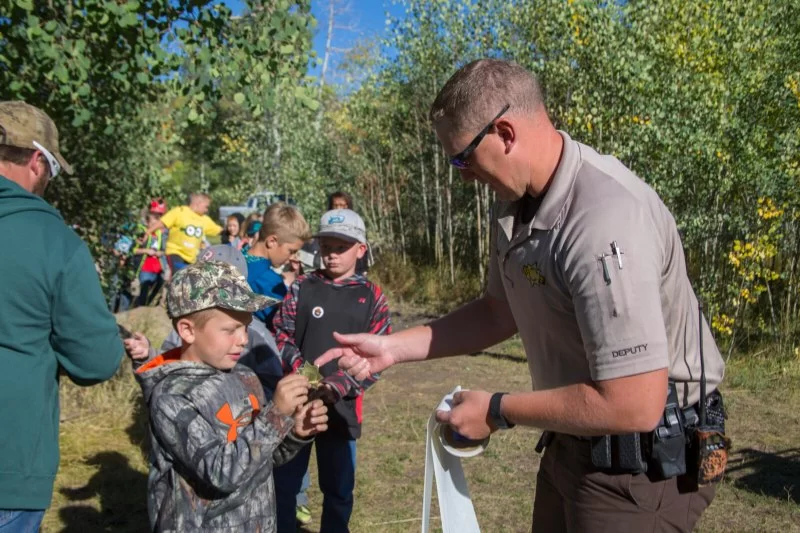Discover the benefits of outdoor education for environmental awareness. Learn how outdoor learning helps foster responsibility, real-world experiences, and eco-friendly values in the USA.

- Linking-outdoor-education-to-environmental-responsibility
- Real-world-learning-experiences-in-nature
- The-role-of-outdoor-education-in-youth-development
- Case-studies-of-successful-programs-in-the-USA
- Long-term-environmental-behavior-change
- How-communities-and-resorts-contribute
Linking Outdoor Education to Environmental Responsibility
Outdoor education has become a powerful tool in teaching individuals how their daily actions impact the planet. Unlike traditional classroom lessons, outdoor learning immerses participants in real ecosystems, fostering a stronger emotional and cognitive connection to nature. When students or adults spend time in forests, riversides, or parks, they don’t just learn facts about the environment—they experience firsthand the interdependence between humans and nature. This direct connection builds a sense of responsibility that often translates into sustainable choices, from recycling and reducing waste to supporting eco-friendly businesses. In the U.S., many communities have embraced outdoor education as a way to raise eco-conscious citizens, preparing future generations to protect natural resources.
Real-World Learning Experiences in Nature
The benefits of outdoor education for environmental awareness are most evident when individuals are actively engaged with natural settings. Instead of passively reading about ecosystems, participants explore them. For instance, catching a glimpse of a bald eagle during a river study session makes the lesson unforgettable. Schools across the U.S. are incorporating field trips to national parks, botanical gardens, and local wildlife sanctuaries, giving students a tangible sense of what they are working to preserve. These experiences extend beyond science lessons—students learn empathy, teamwork, and problem-solving as they face challenges in outdoor environments. Educators argue that these real-world lessons build deeper, longer-lasting awareness compared to traditional indoor lectures.
The Role of Outdoor Education in Youth Development
Youth development benefits significantly from outdoor education programs. Children and teenagers who participate in outdoor learning often display increased confidence, independence, and social skills. They become more resilient by facing challenges such as hiking long trails, camping in unfamiliar settings, or conducting hands-on experiments in the field. A study in 2025 showed that students involved in outdoor education programs were 35% more likely to adopt eco-friendly habits later in life compared to those who received only classroom-based environmental education. Beyond awareness, these experiences nurture leadership qualities and a sense of stewardship, ensuring that environmental responsibility is ingrained early in life. Families seeking enriching activities often choose destinations like Pine Cliff Resort, where structured outdoor learning programs are designed for both fun and awareness.
Case Studies of Successful Programs in the USA
Several U.S. programs highlight the impact of outdoor education on environmental awareness. In California, schools have partnered with local nature preserves to offer multi-day immersion programs, where students monitor water quality and analyze biodiversity. In Maine, outdoor learning camps bring together students from urban areas to expose them to rural ecosystems, helping them develop appreciation for natural landscapes they may never have encountered otherwise. A particularly notable case in 2025 involved a Midwest nonprofit that combined farming education with environmental lessons, teaching children how soil health directly impacts food systems and climate resilience. These success stories prove that outdoor education is more than just an academic exercise—it’s a transformative experience that builds lifelong environmental advocates.
Long-Term Environmental Behavior Change
The real test of outdoor education lies in its long-term impact on behavior. Many studies suggest that outdoor programs increase the likelihood of participants adopting sustainable practices, from reducing single-use plastics to supporting renewable energy initiatives. For example, alumni of outdoor education programs often report higher rates of volunteerism in environmental causes and stronger advocacy for policy changes. A 2025 survey by the Environmental Learning Foundation showed that 72% of adults who participated in outdoor education as children continued eco-conscious practices into adulthood. This demonstrates that the benefits of outdoor education extend beyond short-term awareness, leading to measurable lifestyle shifts that contribute to collective environmental health.
How Communities and Resorts Contribute
Communities and resorts across the U.S. are playing an increasingly important role in outdoor education. Resorts like Pine Cliff Resort are designing programs that combine leisure with environmental awareness, offering workshops on sustainable living and guided nature tours. These experiences not only enhance visitors’ enjoyment but also educate them on how to reduce their ecological footprint. Communities, too, are partnering with local schools and organizations to expand access to outdoor education, ensuring that both rural and urban populations benefit. By investing in outdoor learning spaces, community gardens, and eco-friendly recreational facilities, these stakeholders are helping to shape a culture of environmental responsibility that extends beyond individual families to entire regions.
Baker Lake Rustic Campground
Grand Marais, MN 55604, USA
Visit Location PageShoal Bay Park
Shoal Bay Rd, New Blaine, AR 72851, USA
Visit Location Page